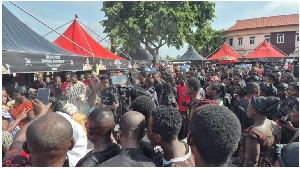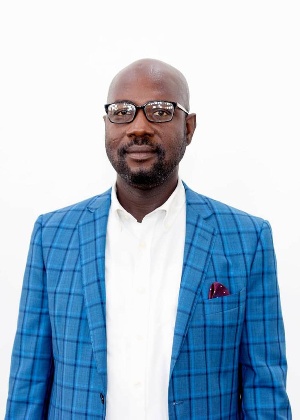Africa News of Friday, 4 April 2025
Source: www.ghanawebbers.com
Zimbabwe: Kirsty Coventry and Whiteness in Zimbabwe - How Sport Can Rewrite the Political Rules
Kirsty Coventry's story is full of contradictions. She is a white woman celebrated in Black-majority Zimbabwe. Once an Olympic swimmer, she is now a politician. Currently, she serves as president of the International Olympic Committee (IOC).
Her journey highlights race, gender, and post-colonial politics in Zimbabwe. The nation still struggles with colonial legacies and Robert Mugabe's authoritarian rule.
As sociologists in Zimbabwe, we analyzed various sources to understand these dynamics. We explored how sport intersects with identity and politics. Coventry became known as Zimbabwe's "golden girl" during Mugabe's regime. This was a time when white Zimbabweans faced vilification.
Despite the political climate, her Olympic success made her a national icon. The state embraced her while rejecting others like her. Her rise to sports minister in 2018 shows how identity can be redefined by the state.
Coventry illustrates how sport can bridge racial divides temporarily. However, politics often reshapes those divides again. Her whiteness was acceptable because it seemed non-threatening and useful.
In contrast, ordinary white Zimbabweans did not receive such acceptance.
As Zimbabwe confronts its past, Coventry remains a paradoxical figure. She symbolizes unity in a nation still divided by race. Her history suggests how she might influence the IOC moving forward.
Coventry was born in Harare in 1983 into a swimming family. Her grandfather chaired the Rhodesian Swimming Board during colonial times. After the 2000 Olympics, she moved to the US for training.
She spent much of her career immersed in American culture but never abandoned her homeland. Even during Zimbabwe's political isolation, she swam under its flag.
Her story reflects a complex negotiation of identity tied to colonialism. At the 2004 Athens Olympics, she won Zimbabwe’s first medals in 24 years. By 2008, she had become Africa’s most decorated Olympian with seven medals.
During Mugabe's violent land reforms, many white Zimbabweans were vilified as remnants of colonialism. However, Coventry was an exception; Mugabe called her "our golden girl." He awarded her US$100,000 for her achievements.
The press dubbed her "immortal Kirsty Coventry" and a "national treasure." She later became a minister under Emmerson Mnangagwa after his coup in 2017.
This embrace was striking given that Mugabe’s government seized white-owned farms at that time. While Coventry received accolades, others like her faced hostility due to their race.
Her sporting success provided rare national pride amid economic turmoil and allowed the state to project unity.
Zimbabwe's racial dynamics are complicated by its colonial history. A white settler regime violently dispossessed Black Africans of land and power for decades.
After independence in 1980, white Zimbabweans retained disproportionate economic power despite being less than 1% of the population.
Mugabe initially preached reconciliation but later used anti-white rhetoric during land seizures in the 2000s.
Coventry was seen as a “good murungu” (white person), reflecting earlier contradictions within Mugabe’s praise for certain whites.
Sport allowed Coventry to be 'deracialized'; her whiteness served the regime’s need for heroes.
This duality shows that racial identity can shift based on political needs.
Unlike threatening white farmers or opposition figures, Coventry symbolized excellence for Zimbabwe on global stages.
Coventry's story also reveals gendered aspects of sports politics.
As a woman athlete, she was framed as “Zimbabwe’s daughter,” embodying national unity.
However, this rise depended on conforming to expectations and avoiding criticism of Mugabe’s policies.
Her later role as sports minister complicates this narrative further.
She reportedly accepted ownership of a controversially seized farm under Mnangagwa’s regime.
Critics accused her of helping to improve an authoritarian government's image while seeking international engagement.
In 2023, Coventry joined IOC's executive board as one of world sports' influential figures.
By March 2025, she made history by becoming IOC president—the first female and first African leader—starting officially on June 23rd.











